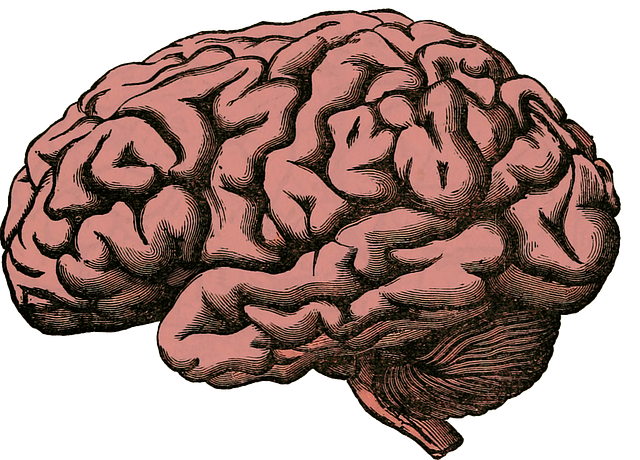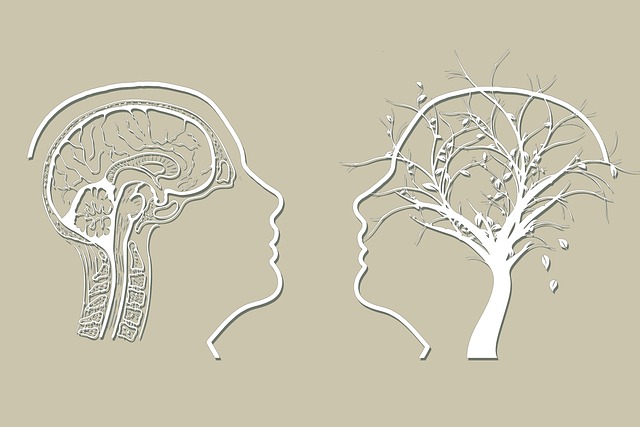Wheat Ridge Dissociative Disorder Therapy offers specialized care for complex conditions often misdiagnosed as they present varied symptoms and comorbidities, such as depression. Using evidence-based approaches and mind over matter principles, therapists empower clients to regain control and improve diagnostic accuracy. Their tailored interventions and burnout prevention strategies create a supportive healing environment, fostering positive thinking and resilience while destigmatizing dissociative disorders through educational initiatives like the Mental Wellness Podcast Series.
Mental illness diagnosis accuracy is a critical aspect of patient care, especially for complex conditions like dissociative disorders. This article explores the multifaceted efforts to improve diagnostic precision, delving into the intricate world of dissociative disorders, their symptoms, and the impact they have on individuals and society. We introduce the transformative Wheat Ridge Approach to Dissociative Disorder Therapy, highlighting its unique techniques and successful outcomes. Furthermore, we discuss advancements in mental health assessment tools, the role of technology, and collaborative professional efforts to ensure accurate diagnoses.
- Understanding Dissociative Disorders: Unveiling the Complexities
- – Exploring the nature of dissociative disorders
- – Symptoms and diagnostic challenges
Understanding Dissociative Disorders: Unveiling the Complexities

Dissociative disorders are a complex group of mental health conditions that often go unrecognized or misdiagnosed. These disorders involve disruptions in an individual’s sense of identity, memory, and perception, leading to symptoms like depersonalization (feeling detached from oneself) and derealization (a distorted view of reality). Understanding dissociative disorders requires recognizing their multifaceted nature, which can be challenging due to the diverse presentations and comorbidities they frequently accompany.
Wheat Ridge Dissociative Disorder Therapy focuses on helping individuals navigate these complexities using evidence-based approaches. Therapists employ mind over matter principles to empower clients, fostering positive thinking and resilience. By integrating Burnout Prevention Strategies for Healthcare Providers, therapists ensure a supportive environment that promotes healing while mitigating the risks associated with long-term stress. Through tailored interventions, individuals can regain control of their lives, improving diagnostic accuracy and enhancing overall well-being.
– Exploring the nature of dissociative disorders

Dissociative disorders are a complex group of mental health conditions that involve disruptions in an individual’s sense of identity, memory, and perception of reality. Often stemming from traumatic experiences, these disorders can present as a coping mechanism for the brain to detach itself from painful memories or emotions. Symptoms may include depersonalization (feeling detached from oneself), derealization (perceiving the world around as unreal), and even multiple personalities or identity states. Understanding dissociative disorders is crucial because they often go undiagnosed or misconstrued, leading to inappropriate treatment approaches.
Wheat Ridge, a city known for its resilience-building initiatives and trauma support services, has emerged as a hub for Dissociative Disorder Therapy. The Mental Wellness Podcast Series Production in this area leverages the latest research and personal narratives to destigmatize these conditions and educate both professionals and individuals affected. By promoting open conversations, Wheat Ridge’s approach fosters an environment where those struggling with dissociative disorders can find support and embark on their journey towards healing, integrating their experiences into a coherent narrative that enhances their mental wellness.
– Symptoms and diagnostic challenges

Mental health professionals face a complex task when diagnosing dissociative disorders, such as those seen in Wheat Ridge Dissociative Disorder Therapy. These conditions often present with varied and sometimes vague symptoms that can overlap with other mental health issues like depression or anxiety. The challenge lies in distinguishing these disorders’ unique characteristics from more common presentations. Many patients struggle to articulate their experiences, making diagnosis even more intricate. This complexity is further compounded by the fact that dissociative symptoms may only surface during specific triggers or stress factors, making consistent evaluation difficult.
Emotional regulation and emotional well-being promotion techniques play a crucial role in addressing these diagnostic challenges. By teaching patients to identify and express their emotions effectively, therapists can enhance communication about their experiences, aiding in more accurate diagnoses. Additionally, focusing on depression prevention strategies can be beneficial as dissociative disorders often coexist with depressive symptoms, further emphasizing the importance of holistic treatment approaches tailored to each individual’s needs.
Mental illness diagnosis, particularly for complex conditions like dissociative disorders, is a delicate process that requires comprehensive understanding and advanced therapeutic approaches. By shedding light on the unique challenges and symptoms associated with these disorders, such as those offered by Wheat Ridge Dissociative Disorder Therapy, we can facilitate more accurate diagnoses. This, in turn, paves the way for personalized treatment plans that cater to the specific needs of individuals navigating these intricate mental health issues.














